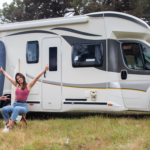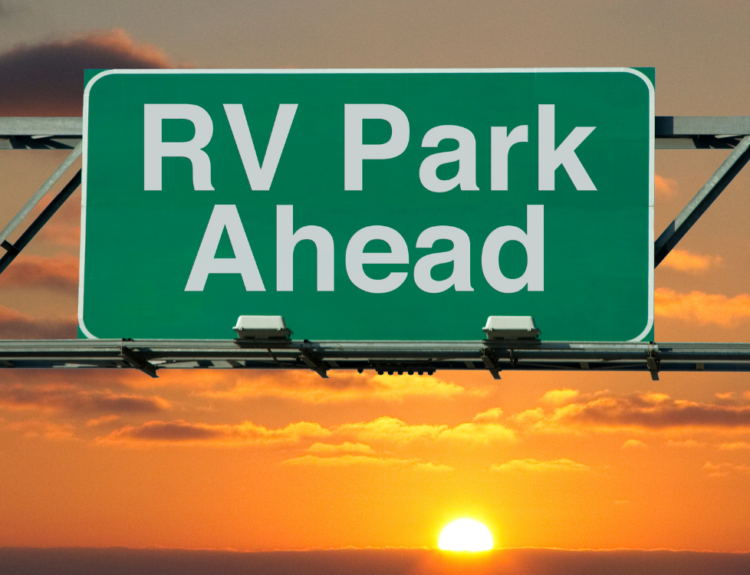The outdoor hospitality industry continues to thrive, with more travelers choosing RV parks, campgrounds, and glamping resorts. In 2025, 93% of campers plan to spend the same or more on camping, proving that demand for outdoor travel remains strong. Summer camping is still the most popular season, but winter camping is growing as more travelers want to go on adventures all year round.
To stay competitive, campground owners must keep up with evolving guest expectations, technology, and industry shifts. This blog looks at the top campground industry trends for 2025 and offers insights and strategies to help campground owners adapt and succeed.
Key Takeaways
- Campground travel remains strong, with 93% of campers planning to maintain or increase their camping budget in 2025.
- Direct bookings are growing, making up 56% of all reservations in 2024.
- Luxury glamping and nostalgia-driven experiences are attracting travelers seeking unique stays.
- Remote work and long-term stays continue to shape the industry, increasing demand for high-speed internet at campgrounds.
- Social media and influencer marketing are essential for campgrounds looking to boost engagement and attract new guests.
Understanding the Campground Industry: Competition, Demographics, and Challenges
The campground industry is growing, but with expansion comes new challenges. Competition is increasing as more campgrounds, RV parks, and glamping resorts enter the market.
At the same time, camper demographics are shifting, requiring owners to rethink their amenities and marketing strategies. In 2025, campground owners need to know what’s happening in the market, how people travel, and when people stay in their area.

Changing Demographics of Campers
Traditionally, family campers dominated the market, but according to our annual report, in 2025, nearly 4 out of 5 campers will be adults traveling solo or in adult-only groups. This means campgrounds must adapt to a demographic that values peaceful environments, reliable internet, and flexible accommodations.
Additionally, according to our annual report, 1/10 campers go with pets, making pet-friendly accommodations a major factor in campground selection. Owners should still consider designated pet areas and clear pet policies to attract pet travelers.
Regional Occupancy Trends
Not all regions are experiencing the same level of growth. According to our annual report, some areas are seeing record bookings, while others are having trouble attracting travelers:
- The South remains the top destination, accounting for 34% of all reservations (+9% from last year). Warmer weather, winter-friendly campgrounds, and year-round outdoor activities make this region a top choice.
- The Midwest saw the highest growth (+12%), signaling increased interest in off-the-beaten-path camping experiences.
- The Northeast experienced a sharp decline (-30%), possibly due to harsher weather, fewer winter-friendly parks, and changing traveler preferences.
- Winter camping is rising, with 21% of travelers choosing the South and 19% heading West to escape cold climates.
For campground owners, these insights emphasize the importance of offering seasonal flexibility and marketing to the right audience. Activities like winter glamping, heated cabins, or festive holiday events may help those in declining regions.
Direct Bookings and Reservation Behavior
A key industry shift is the rise in direct booking which now accounts for 56% of all reservations. Guests are moving away from Online Travel Agencies (OTAs) and preferring to book directly through campground websites or over the phone.
- Phone bookings increased by 9% in 2024, making up 27% of total reservations.
- Walk-in bookings rose by 30%, showing that spontaneous travel is gaining traction.
- 67% of campers in 2024 were repeat visitors, with an increase in first-time campers (+3%).
For campground owners, this trend signals a need for an optimized booking process. According to Misty Mountains RV Park’s Case Study, implementing an efficient reservation system led to a 172% revenue growth and a 62.75% increase in repeat guests.
Additionally, the partnership with platforms like HipCamp through RoverPass contributed to 25%–30% of total reservations, proving that a strong online presence and streamlined booking process directly impact a campground’s success. Therefore, having a well-designed website, a mobile-friendly booking system, and strong customer retention strategies is essential for maximizing direct bookings and staying competitive in the industry.
What Are the Key Campground Industry Trends for 2025?
Camping trends are evolving, shaped by consumer preferences, technology, and economic factors. In 2025, travelers want pet-friendly accommodations, nostalgia-driven experiences, luxury glamping, and social media engagement. These trends will help campgrounds stand out and get more guests.

1. The Rise of Pet-Friendly Campgrounds
Even with a slight decline in pet travel, 1 in 10 campers still bring pets, and pet-friendly amenities continue to be a key decision-making factor. When choosing a campground, pet owners look for dog parks, places to wash their pets, and clear rules about pets.
How can campgrounds use this trend to their advantage?
- Offer fenced-in dog parks and agility courses.
- Provide pet-washing stations and pet-friendly cabins.
- Clearly communicate pet policies and fees on the website.
2. Nostalgia-Driven Camping Experiences
Many campers are looking for simpler and more enjoyable experiences to escape from modern life. According to the campground marketplace, 88% of campers want to get away from technology, and 72% say nostalgia will play a role in their travel decisions.
How can campgrounds benefit from this trend?
- Offer themed events like vintage RV rallies or classic campfire storytelling nights.
- Create retro-style cabins, Airstream rentals, or 80s-themed road trip experiences.
- Use branding and decor inspired by classic camping culture.

3. Luxury Glamping and Upscale Camping
Luxury camping is becoming one of the fastest-growing segments of the outdoor hospitality industry. Travelers want high-quality accommodations that are both natural and comfortable.
How campgrounds can capitalize on this trend:
- Invest in glamping accommodations like yurts, safari tents, or treehouses.
- Offer premium amenities, such as spa services, private fire pits, and gourmet dining options.
- Market glamping experiences to millennials, couples, and luxury travelers.
4. Social Media and Influencer Marketing
Social media plays a crucial role in how travelers choose campgrounds. Younger generations rely on Instagram, TikTok, and YouTube for travel inspiration.
How campgrounds can capitalize on this trend:
- Encourage user-generated content by offering incentives for guests to post reviews or photos.
- Host social media contests or giveaways to increase visibility.
- Partner with influencers and outdoor bloggers to attract a wider audience.

How Campgrounds Can Join These Trends for Success
Understanding trends is only part of the process. Putting them into action is equally important. Campgrounds that optimize bookings, create unique experiences, and engage with guests will see higher occupancy rates and increased revenue in 2025.
Optimize Booking Strategies for Direct Reservations
56% of travelers prefer booking directly through campground websites, phone calls, or coming in person instead of using third-party websites. Moreover, the increase in phone and walk-in reservations suggests that guests value personalized customer service and the flexibility to book last-minute.
Campgrounds must make the process simple and user-friendly, including things like:
- The website should be easy to navigate and mobile-friendly.
- Offer special benefits for booking directly, like free firewood and early check-in.
- Use automated email follow-ups to reduce the number of abandoned reservations.
Create Luxury Glamping Experiences
The demand for high-end camping options like yurts, safari tents, and A-frame cabins is increasing as more travelers seek the comforts of a hotel in a natural setting. Guests are willing to pay extra for unique accommodations that blend nature, comfort, and exclusivity. You can try adding:
- Use professional photography to showcase the uniqueness of your glamping units.
- Offer exclusive guest experiences, such as private hot tubs, wine tastings, or guided nature tours.
- Create glamping packages for honeymooners, corporate retreats, and high-income travelers.
Enhance Social Media Marketing
Social media has become a key driver in travel decisions, with platforms like Instagram, TikTok, and YouTube shaping how people choose their camping destinations. Younger travelers, in particular, rely on user-generated content and influencer recommendations when deciding where to stay.
- Showcase guest experiences through Instagram videos, TikTok videos, and YouTube videos.
- Use seasonal promotions and user-created content campaigns.
- Make people feel like they belong together by talking to them online and responding to their comments.

Frequently Asked Questions
1. How do I start offering luxury glamping options?
Start by researching market demand and choosing high-quality accommodations, like yurts or safari tents. Buy premium bedding, unique decor, and amenities like private fire pits or outdoor showers.
2. How can I adapt my campground to changing camper demographics?
Focus on technology, convenience, and unique experiences. Provide high-speed Wi-Fi, smart check-in options, and mobile-friendly services for digital-native travelers. Incorporate eco-friendly practices and pet-friendly amenities to meet changing guest expectations to boost guest engagement with on-site events, adventure activities, and communal spaces.
3. How can I incorporate nostalgia into my campground experience?
Offer special weekends like renting old RVs, telling stories around the campfire, or taking 80s-style road trips. Design cabins or campers that look retro.
4. How can campgrounds stay competitive in a growing market?
Make your campground stand out by offering unique experiences like luxurious camping or nostalgic stays. Use social media marketing and direct booking incentives to get more guests.
Want to stay up to date with the new campground trends? Fill out the following form to download your copy of our annual report and stay ahead of the campground industry.






